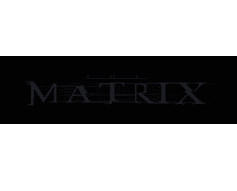
Remarks for Central Intelligence Agency Director John O. Brennan as Prepared for Delivery at the Conference on the Ethos and Profession of Intelligence, Georgetown University
Remarks for Central Intelligence Agency Director John O. Brennan as Prepared for Delivery at the Conference on the Ethos and Profession of Intelligence, Georgetown University
June 11, 2014
Thank you, Burton [Gerber], not only for your kind words but also for your 39 years of distinguished service as a CIA officer and for your invaluable contributions to the study of the intelligence profession. It is an honor and pleasure to have you with us here today.
And, of course, I want to thank President DeGioia and everyone at Georgetown University for co-sponsoring this conference. There is simply no institution better suited to host a discussion of the topics we are tackling today, and it is a privilege for me to be here among the students and faculty of this great school.
As you know, the Central Intelligence Agency does not hold a lot of public conferences. Our foreign counterparts tend to hold even fewer—as in zero.
But like any other part of the United States Government, the Agency and our Intelligence Community partners must have the trust and confidence of the American people in order to do our job. To that end, I believe we must engage our fellow citizens and, to the extent we can, explain the work we perform on their behalf and articulate our motives, values, and objectives.
Just as importantly, we need to listen to what the people have to say and to hear the views of outside experts. CIA is very much a learning organization, one that makes a deliberate effort to learn from the past, adapt to the times, and refine its methods. This event was envisioned as an open forum from which we all can learn and benefit.
Ethos of Intelligence
I want to take a moment to shed some light on the origin of our conference title, “The Ethos and Profession of Intelligence,” and to offer some thoughts on the subject itself.
Too often, the Intelligence Community is treated as a monolithic, almost mechanical entity rather than what it really is: a constellation of very talented, very committed women and men guided by a professional ethos with many dimensions—service, integrity, excellence, courage, teamwork, and stewardship, among others.
Our identity as Americans decisively shapes how we approach our work. We are acutely aware of the extraordinary authorities with which our government—indeed, our fellow citizens—have entrusted us, and we feel a deep and abiding obligation to justify and earn that trust. Likewise, we readily accept that the bar is set higher for us in part because of the natural tension that has always existed between the secrecy our mission requires and the openness of the society we serve.
Intelligence has been critical to our national interests and security since George Washington personally directed espionage networks during the founding of our Nation. In subsequent years, America’s efforts were mostly tactical and long confined to the military realm, and it wasn’t until 1947 that the United States finally did what every other great power had done: establish a civilian intelligence service for both peacetime and war. President Truman did so to counter the growing Soviet threat to the postwar environment and to gain better insight into political, social, economic, and military developments worldwide.
I joined that service, the Central Intelligence Agency, in 1980. I believed in its mission then, and I believe even more strongly in it today. We have had the great fortune over the past 67 years to play an important role in keeping this Nation strong and its people safe from the constantly evolving array of overseas threats.
Today, and certainly not for the first time in our history, America’s Intelligence Community is at a crossroads. The transformational impact of technology and enhanced scrutiny and skepticism of the value, legality, and appropriateness of our mission have prompted a reexamination of the work of intelligence agencies, understandably and rightly so.
Global Challenges
But this reexamination is taking place at a time when our Nation faces an ever-growing list of national security challenges, one that in my view has few precedents in our history. To be sure, we have confronted grave threats before, some of them more serious than the ones before us today. But rarely have we encountered such a bewildering variety of challenges and threats all at once. Just consider the events that are playing out on the world stage.
We see a terrorist threat that is atomizing into a patchwork of extremist groups across several continents, undermining political stability and basic law and order, and presenting new dangers to American interests. We see determined efforts to acquire the means for producing weapons of mass destruction. We see the tragedy of human trafficking, and the ruthless tactics of drug cartels seeking to protect and expand their turf.
In far too many countries, we see civil strife and violent conflicts over religion, land, political ascendance, sectarianism, and access to food and water. We see the growth of ungoverned spaces where extremists can take root. And we see the rise of groups like Boko Haram that are preying on the innocent, kidnapping girls for simply going to school.
In the past year, territorial disputes between nation states—the cause of so much suffering in the last century—have returned to the fore, most notably in eastern and southern Ukraine and in the waters of the East and South China Sea.
At the same time, the world is grappling with a new breed of challenges enabled by advancing technology, with cyber attacks unfolding on a massive scale, as rival nations, criminal gangs, and “hacktivists” seek to exploit vulnerabilities in the digital domain.
In this dangerous and dynamic world, intelligence and corresponding analysis are key to identifying, understanding, and successfully addressing the myriad national security issues that confront policymakers.
The complexity of this task is hard to overstate. It is one thing to report on a crisis that has already happened: to identify the key players, to map out their support networks, and to describe their methods and motivations. It is something else to put all that information together in advance, before an event occurs, and to provide it to policymakers with enough time—and enough precision—for them to act.
This is the mission to which CIA officers dedicate their lives. While we do not have a crystal ball, we have an obligation as intelligence professionals to look beyond the next horizon—to not only highlight key events around the globe, but to explain the forces that are likely to shape them in the weeks, months, and years to come.
We do not always get it right. We have made mistakes, more than a few, and we have tried mightily to learn from them. But every day, CIA officers go to enormous lengths to anticipate future threats, and to thwart the plans of those who would threaten our freedom and security.
CIA’s Essential Mission
Our contributions span the gamut of national security challenges. We work with our military, law enforcement, and diplomatic colleagues, as well as our allies and partners overseas, to prevent devastating terrorist attacks—whether they be aimed at our homeland or at targets on foreign soil. We help protect our Nation and our fellow Americans from cyber attacks. We support efforts to interdict shipments of illicit arms, to dismantle drug cartels, and to break up syndicates engaged in human trafficking.
And we help build the capacity of foreign security and intelligence forces so they can address the threats arising inside their own borders. Increasingly, governments around the globe recognize that no matter how capable their military, security, and intelligence agencies might be, no nation can counter the plethora of 21st century transnational threats on its own.
Over the past five years alone, there have been major developments that have altered the course of world history—chief among them the political upheavals associated with the so-called “Arab Spring.” From day one, CIA has played a central role in helping our policymakers navigate this rapidly changing landscape.
The fact is, good intelligence—timely, accurate, and insightful—is the cornerstone of almost every aspect of national security policy today, from military action to diplomacy to international law enforcement.
With it, our policymakers see an issue in its entirety, with the risks, challenges, and opportunities clearly delineated. Without it, our government would have to make its way in the treacherous global arena nearly blind.
Most of our work supporting policymakers involves information—collecting it, analyzing it, and getting it to the people who need it. But we do more than that. When directed by the President, we also use our covert action authorities to help advance U.S. foreign-policy objectives.
For all these reasons, CIA is a truly indispensable agency. As former CIA Director President George Herbert Walker Bush put it in 1991: “Intelligence remains our basic national instrument for anticipating danger—military, political, and economic.”
Those words are as true now as they were then. In fact, given the number of threats and foreign policy challenges facing our country—and how difficult they are to track—I would argue that CIA has never been more important to the strength and security of our republic.
The question facing us today is how to ensure that our contribution to national security remains as positive and as meaningful in the future as it has been in the past. This is the fundamental challenge facing our Agency, as we confront not only sweeping technological change that affects every aspect of our daily lives but also evolving considerations, policies, and legal frameworks about the appropriate and necessary role of intelligence in an open society.
You have heard some very informed and insightful views this morning on technology and the private sector, and how they relate to our work. I would now like to offer some thoughts on the subjects to be addressed in our afternoon panels: the role of intelligence in the 21st century and the need to strike a proper balance between secrecy and accountability.
Role of Intelligence in the 21st Century
As we position our Agency for the future, one of our main challenges is how to remain relevant in the digital information age.
Information technology has transformed the world since I first embarked on my intelligence career. Today’s 24-hour news outlets and social media provide instant coverage and analysis of global developments. The near-monopoly our Stations and Bases overseas once enjoyed in covering fast-breaking developments for policymakers—particularly in remote areas—is long gone.
In the business world, we have seen once great corporations decline and collapse when they fail to keep up with the times. To avoid that fate, CIA and our Community partners must continually adapt if we are to compete with the ever-growing, ever-accelerating supply of information and analysis.
As a former policymaker myself, I can assure you that CIA still provides information and analysis that social media, news organizations, and our foreign intelligence partners cannot. A key reason is the type of information our Agency collects—not just intelligence, but humanintelligence.
For all the technical wizardry that is currently available worldwide, nothing can replace the insight that comes from a well-connected human source. At their best, human sources go beyond the dry facts of an issue and help discern the intent of an adversary—precisely the edge that our policymakers are looking for. As former CIA Director Richard Helms once said: “Gadgets cannot divine man’s intentions.”
One of CIA’s main challenges in the coming years, then, is to make to the most of this advantage. We must focus our efforts on uncovering secrets that only human sources can acquire, those that are typically locked inside the inner circle of an adversary. These are the hardest of hard targets, but they are ones that CIA is especially well equipped to pursue.
The Cyber Challenge
Looking ahead, another big challenge for CIA will be cyberspace—figuring out how to take advantage of the opportunities while mitigating the risks.
For the Intelligence Community, the cyber world is a double-edged sword. Digital footprints may enable us to track down a suspected terrorist, but they may leave our officers vulnerable as well. Websites and digital platforms can shed light on the practices of despotic regimes, but they can also be used to inspire violence against our citizens and interests. And while our networks allow us to communicate instantly across the globe, they can also be targeted by hackers seeking to disrupt our operations and steal our information.
The same is true for the private sector, where American businesses and institutions of all stripes are fending off repeated efforts to intercept their communications, shut down their networks, and harvest their know-how.
But for the Intelligence Community, the problem is about much more than cyber attacks per se. It is also about the technologies that make it possible to study bomb making on the Internet, to case a target remotely, and to coordinate among far-flung associates to carry out a sophisticated attack. Aided by the cyber domain, individuals and small groups—not only nation states—now have the power to sow enormous destruction, greatly expanding the number of threats that our government must monitor to keep our Nation safe.
Indeed, there is hardly an intelligence problem today that is not affected to a large degree by the cyber realm. It is where so many of life’s basic transactions are now taking place—social, financial, political, commercial, educational, and more. Yet it still remains our planet’s new and relatively uncharted frontier. If we are to understand the world we cover, and to provide our policymakers with the intelligence they expect, we must immerse ourselves in that frontier, and adjust our tradecraft accordingly.
In developing powerful tools to meet this challenge, CIA and our Community partners face a question that may be unprecedented in our history: If we possess an extraordinary technical capability—and are legally authorized to use it—should we necessarily do so?
If this were asked on September 12th, 2001, we could be reasonably certain of the answer. From the vantage point of that terrible crisis, the fact that we are asking this question now would be seen as a remarkable change. But this question is made possible by the tremendous strides we have made over the past 13 years in strengthening our national security.
The question of foregoing a collection capability also reflects the complexity of our mission in a world that is becoming intensely interconnected. Boundaries between domestic and foreign communications are disappearing rapidly in a world vastly different from the one that existed at CIA’s founding.
The Soviets were a closed society with a communications network largely segregated from that of the Free World. The enormous collection effort fielded against their vast military complex carried little or no legal or moral ambiguity.
But the terrorists we face today routinely use the same channels everyone else does. And, of course, it is that distinction—confronting an enemy who seeks to operate within our own borders, who uses our own infrastructure, and who relies in part on the protections provided by our own laws and regulations—that lies at the heart of the thorniest issues under debate in this country and in free societies everywhere.
Conclusion: Striking a Delicate Balance
We all seek a common goal: to strike a balance between the need to protect civil liberties and the need to protect the lives of our citizens. And wherever that equilibrium may lie, we know it is a moving target.
It tends to swing back and forth between periods in which society is preoccupied by external threats, and those in which it is preoccupied by a sense that the government’s response to those threats has strayed from principle or even the law.
Even as we move to achieve a balance that is responsive to what the times demand, we must be mindful that there are natural limits to how open any espionage service can afford to be. As intelligence officers, we at CIA have a solemn obligation to safeguard not only the Nation we serve, but the sources and methods that enable us to do so. Stewardship is an essential element of our professional ethos, and we must honor it as surely as the oath we take to defend the Constitution.
As I have said, we in the Intelligence Community act on behalf of the American people. Every power we have—every authority with which we are entrusted—comes from them. And just as our tradecraft must keep pace with technology if we are to accomplish our mission, so too must our decisions faithfully reflect the will of the American people.
President Obama already has taken a number of steps to provide greater accountability and insight into the work of our Community. These measures largely address the operations of our colleagues at the National Security Agency, but they set a clear direction for us all. CIA is committed to charting a way forward that, in the President’s words, “secures the life of our Nation while preserving the liberties that make our Nation worth fighting for.”
Ultimately, that is the ethos that guides our profession. While much of what we do must remain secret, our actions must conform—in every instance—to the values and principles upon which our Nation was founded.
Thank you all very much.
Posted: Jun 11, 2014 01:39 PM
Last Updated: Jun 11, 2014 01:39 PM










































































































No comments:
Post a Comment